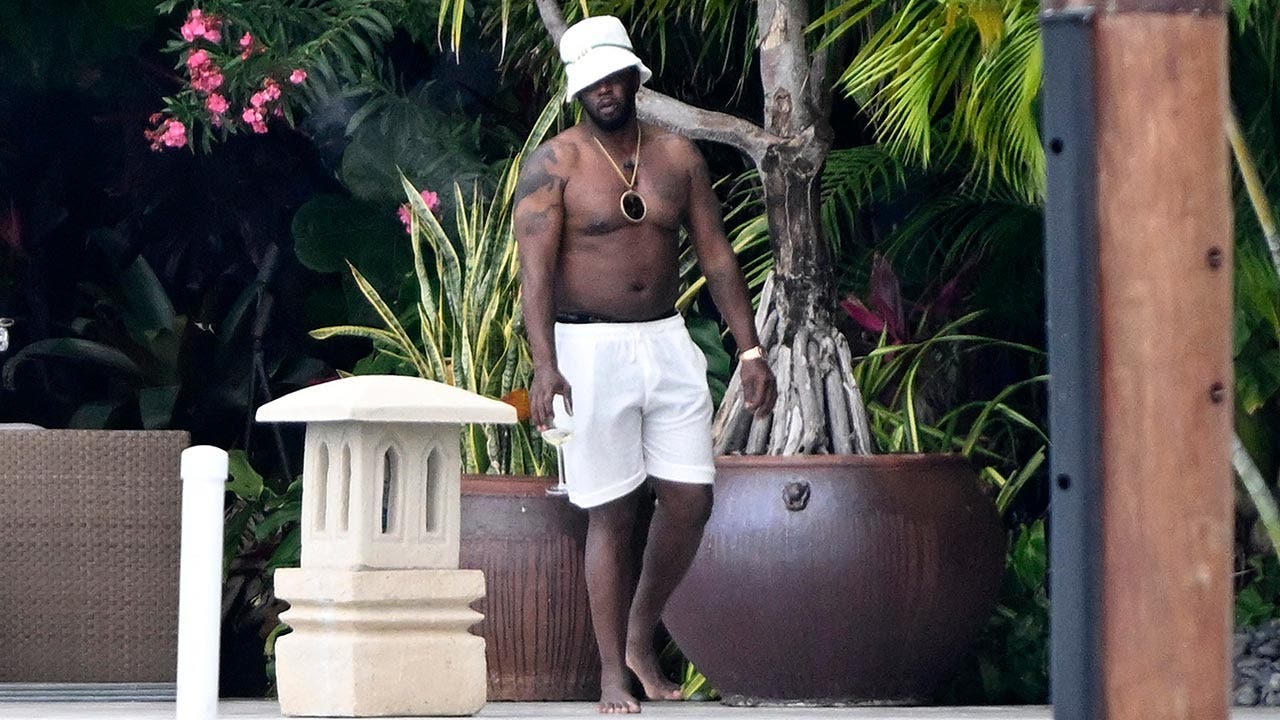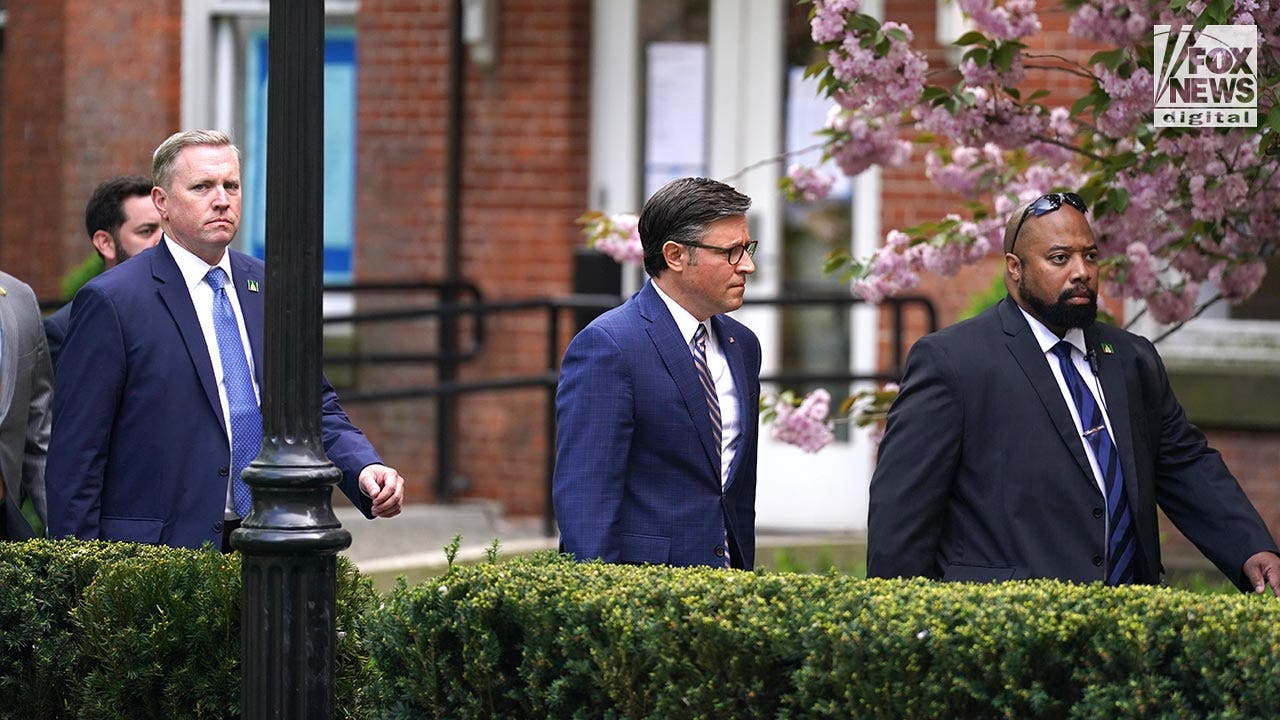I still hear from readers who learned about the Connections game from this newsletter and now play it every day. Today, I want to tell you about The Times’s newest game, called Strands. It’s another quick, entertaining way to exercise your brain.
Strands is a word search with a few twists. Each day, the puzzle has a theme, and your job is both to find the one word that describes the theme as well as a handful of examples. In today’s newsletter, I’ll walk you through a puzzle from this past week — and then link to today’s, so you can try for yourself.
A lucky ‘vogue’
The first twist is that Strands allows the letters in a word to travel in multiple directions. The second letter can be above the first letter, while the third letter might be at a diagonal from the second. As an example, look at the upper-left corner of the grid from Thursday, and you can see that T-H-I-S is a potential word. You begin in the very corner, go across to the H, down to the I and over to the S:
The second twist is that each puzzle starts with a brief, and slightly mysterious, description of the theme. The description for the puzzle here was “What’s the issue?”
You may be a better puzzler than I am, but I am rarely able to recognize the theme based only on the mysterious description. That’s OK, because the third twist in Strands is that there is a way to receive hints. If you highlight any three words, even words that have nothing to do with this puzzle, Strands will then give you a hint.
On Thursday, for example, I wasn’t sure what “What’s the issue?” meant, but I did notice the obvious word on the top line: “thigh.” Once I highlighted it, Strands told me I was a third of the way toward a hint. At this point, I got lucky. The second word I noticed was “vogue” — and it turned out to be one of the words that was part of the solution. Strands highlighted it in blue as a result.
The combination of “vogue” and “issue” gave me a good sense of what the puzzle theme might be: the names of magazines. I went looking for the names of other well-known magazines and found “people” (in the lower right) and “time” (in the upper left).
The final twist with Strands is that the name of the theme itself — “magazine,” in this case — is in the puzzle, and it always stretches from the grid’s left column to its right column, or vice versa. I find that focusing on unusual letters can be helpful in Strands, and I used the z in “magazine” to find it.
I then focused on the v and spent a minute or two working out “seventeen.” The last word had me harking back to grade school: “highlights.” Here’s the full solution:
Today’s puzzle
Now it’s your turn. Below is an image of today’s puzzle. You can play it here. I hope you enjoy your Sunday.
A programming note: I’m off this week, and my colleagues will be writing The Morning in my absence. I’ll be back in your inboxes on Tuesday, April 2.
THE LATEST NEWS
Russia Concert Attack
THE SUNDAY DEBATE
Is Apple a monopoly?
No. If consumers don’t want Apple’s products, they could purchase Android phones, which make up the other half of the U.S. market. “Apple has been hugely successful, but not universally so,” The Wall Street Journal’s editorial board writes.
Yes. The Department of Justice antitrust lawsuit targets a company that has long exploited both consumers and workers. Apple alongside Google and its Android phones have become “a duopoly that undermines the very rule of law,” Aidan Smith writes for Common Dreams.
Warm hearts, cold noses: Families affected by a mass shooting at the Covenant School in Nashville have turned to dogs for healing.
Joan Jonas: The artist’s work shines at MoMA. See photos of the show.
A Great Read: A Times correspondent sent his 13-year-old to a school in the Australian wilderness where students don’t have access to the internet or phones. Here’s what his family learned.
Vows: An unexpected DM helped lead to love.
Lives Lived: David Harris was a former Air Force bomber pilot who became the first Black pilot hired by a major commercial airline in the U.S. He died at 89.
THE NEW YORK TIMES MAGAZINE
I’ll be part of a new Q. and A. franchise, The Interview, that’s launching in late April. Before then I’m sharing some of my favorite past interviews. Here’s one with the late economist Herman Daly, who lamented our unending pursuit of economic growth.
Historically we think that economic growth leads to higher standards of living, lower death rates and so on. So don’t we have a moral obligation to pursue it?
In ecological economics, we’ve tried to make a distinction between development and growth. When something grows, it gets bigger physically by accretion or assimilation of material. When something develops, it gets better in a qualitative sense. It doesn’t have to get bigger.
But how would a country continue to raise its standard of living without growing its G.D.P.?
It’s a false assumption to say that growth is increasing the standard of living in the present world because we measure growth as growth in G.D.P. If it goes up, does that mean we’re increasing standard of living? If you subtract for the deaths and injuries caused by chemical pollution, wildfires and many other costs induced by excessive growth, it’s not clear at all.
You’ve spent a lifetime arguing rationally for your ideas. But growth is still king. Is that disappointing?
My duty is to do the best I can and put out some ideas. Whether the seed that I plant is going to grow is not up to me. It’s just up to me to plant it and water it. But you’re asking about disappointment. I get a lot of criticism in the sense of “I don’t like that; that’s unrealistic.” I don’t get criticism in the more rational sense of “Your presuppositions are wrong” or “The logic which you reason from is wrong.” That is a disappointment.
Read more of the interview here.
BOOKS
Tom Hanks: The actor reviewed a children’s novel about a typewriter. He’s a typewriter enthusiast.
School visit: A Bronx teacher wrote an impassioned email to the author Tommy Orange. Orange dropped everything to visit the students who inspired it.
Our editors’ picks: “Grief Is for People,” a memoir about losing a friend to suicide, and seven other books.
Times best sellers: Marilynne Robinson won a Pulitzer in 2005 for her novel “Gilead.” Her latest book, “Reading Genesis,” is a new addition to the hardcover nonfiction list.
THE MORNING RECOMMENDS …
Find New York City’s cherry blossoms.
Make a good photo book.
Garden with these tools.
Let us help you find your next novel.
THE WEEK AHEAD
What to Watch For
-
Senegal’s presidential election begins today. (Read about the chaos surrounding the vote.)
-
The deadline for Trump to post a $454 million bond in New York is tomorrow, after he lost the civil fraud case against him.
-
The Supreme Court hears arguments Tuesday on the F.D.A.’s approval of mifepristone, a drug used in abortions in the U.S.
-
Robert F. Kennedy Jr., the independent presidential candidate, is expected to announce his vice-presidential pick on Tuesday.
-
The Sweet Sixteen round of the N.C.A.A. basketball tournament begins on Thursday for the men’s field, and Friday for the women’s.
Meal Plan
In this week’s Five Weeknight Dishes newsletter, Emily Weinstein offers recipes to add to your spring cooking bucket list. One recommendation: The perfect March meal of mushroom and ginger rice, which crosses the coziness of one-pot rice with bright ginger and plump mushrooms.






